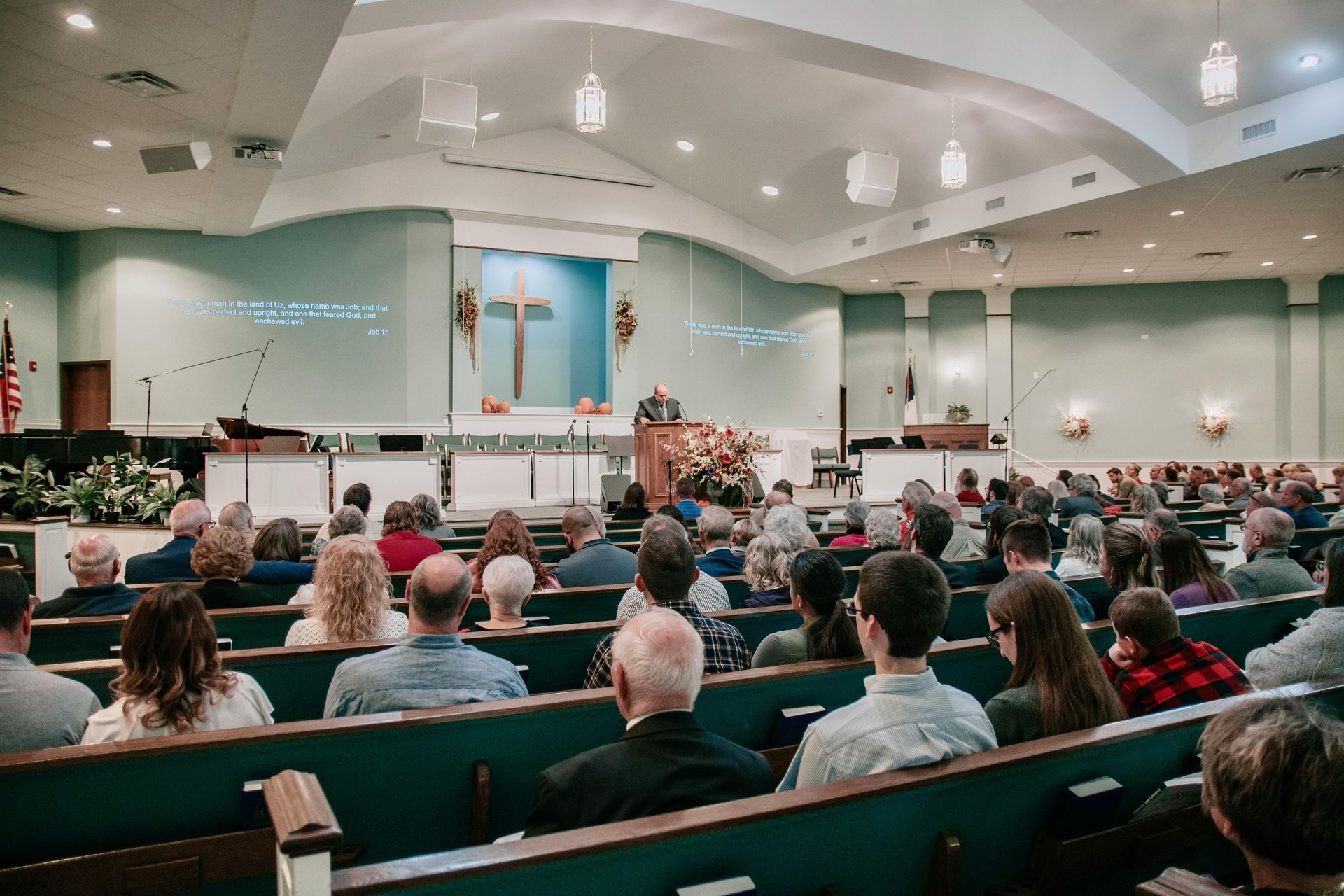Addressing the Pastoral Shortage (Part 2): 3 Statements for Future Leaders
We Need to Be Honest About the Sacrificial Call to Dedicate One's Life to the Church
(Read Part 1 on 3 Steps Churches Can Take in addressing the current and potential future pastoral shortage).
In order to both call people into ministry and get them to stay in ministry, there has to be a deep willingness to surrender "rights," sacrifice comforts, and above all cultivate a servant attitude.
If we're not honest with future ministry leaders about what it takes to survive in ministry, and we're not intentionally building leaders with the required character, then the predicted pastoral shortage will become a reality quite soon.
* * * * *
I’m getting to the point in my ministry where I’m starting to think a little less about my future and what is God’s call for me, and a little more about the future of the church, future leaders, and the call to give one’s life for the gospel.
That’s not because I’m old or done. I’m more energized than ever in ministry, and I still feel like I’m just getting started. But at the same time I’ve now been in church ministry for over 20 years, with the last 10 spent in a lead pastor role.
I’ve entered my early 40s (still young, I know!), but I can’t help but start to think more and more about future leaders, about someone being ready and available to someday take my place at our church.
And that's why I'm concerned that fewer and fewer people are hearing or heeding the call of God to give their lives to full-time vocational church ministry or missions.
As many as 600 pastors per year will be needed in the Canadian church over the next 12 years in order to replace those retiring.
Already we’re seeing unusually large numbers of pastoral vacancies and that vacancies are taking longer to fill than ever.
My wife and Co-Lead Pastor knows this well. In her role on a leadership team that cares for our network of 200+ churches across BC & Yukon, they frequently lament the amount of churches in BC that have been without a pastor for years, resulting in decline in both numbers and influence in their communities.
In my next post (part 3) I'll tell the story of our church, which was one of those churches.
But whereas the last post was a bit more of practical action steps, here I want to focus on the spiritual aspect of the shortage.
What we often find is young leaders are quickly disillusioned and disappointed after their first few years of ministry and are therefore leaving for other jobs. I know dozens of stories that reflect this reality, and the statistics back it up.
There are things churches can do to help, but there also needs to be spiritual preparation and realistic expectations for these leaders.
Ministry is really really hard.
Yes, I know lots of jobs are hard and have low retention rates. But there is something significant about the heart-work of giving one's life to the church, pouring out one's soul to and for others, and the hurt and disappointment that can come when things don't go well.
So we need to better prepare leaders for the realities of church leadership. Christian leadership is not meant to be glamorous. It's not self-made and not about status (1 Cor 4:6-10), but rather it's modeled after the humble service and sacrifice of Christ (1 Cor 4:1-2, 11-13). If that is not the model and motivation, leaders will not last.
If we are to address the shortage of Christian ministry leaders, it’s going to take a certain kind of intensity and dedication to the call.
Here's 3 statements from Paul in 1 Corinthians 9 that represent the leader's necessary call to surrender, sacrifice, and serve.
1) “put up with anything” (9:12): The Call to SURRENDER
Paul says “we put up with anything rather than hinder the gospel of Christ” (9:12). In other words, and as much of 1 Corinthians communicates, Paul's personal preferences, wants, or needs take a back seat to the call to the gospel.
Unfortunately, I know of many leaders or pastors who leave the church when they're faced with the reality of lack of resources, long hours and low pay, and begin to realize that their pastoral life will not lead to a "big-time" platform with lots of notoriety.
Most pastors do their work in relative obscurity. Pastoring in most contexts is a pretty lonely job.
Future leaders need to have the attitude that they are willing to "put up with anything" for the sake of the gospel so that they don't give up.
2) "I would rather die" (9:15): The Call to SACRIFICE
Paul says “I would rather die” than let the gospel be misrepresented.
Paul wasn’t just using hyperbole here, he lived this. Earlier in 1 Corinthians 4:11-13 he gives the job description for Christian ministry:
The Job Description for Christian Ministry
11 To this very hour we go hungry and thirsty, we are in rags, we are brutally treated, we are homeless. 12 We work hard with our own hands. When we are cursed, we bless; when we are persecuted, we endure it; 13 when we are slandered, we answer kindly. We have become the scum of the earth, the garbage of the world—right up to this moment.
It’s why 1 Corinthians makes so much sense as a teaching tool for future leaders. In 1 Corinthians Paul is contrasting himself to Corinthian church leaders who want the good life, the prestige, the honour, the money, and notoriety, and Paul tells them repeatedly throughout the letter, "here’s what true Christian ministry is like."
As I meditated on these descriptions in chapter 4, I realized that everything Paul says he’s gone through is modeled after Jesus’ earthly life.
I made this little table to show the point. Perhaps church's could put it in church job descriptions, or Bible College's could slip it into diplomas at graduation!

Like Jesus, pastors often need to put to death things in our lives like a wealthy lifestyle, having material comforts, being financially secure, having to get the last word, returning harsh words with hard words, building ourselves up as something or someone important, etc. None of that matters when we follow the way of the cross and consider our call to serve others.
The resolve and willingness to sacrifice in these ways—which imitate Christ—would keep a lot more leaders in ministry for longer.
3) "slave to everyone" (9:19): The Call to SERVE
Of course the word here (δοῦλος) does not carry the modern connotation of slavery. Paul means—and it can be translated as—servant.
Paul's willing to be a servant to EVERYONE. It's easy to be a servant to the picture-perfect congregation a future pastor might have in their head: people we like and are easy to minister to, people who carry a similar vision for the church, people who treat us well, people with connections.
But that's not really who Paul has in mind here. In a paradoxical move, Paul uses his freedom in Christ (v. 19) to make himself free to be a servant to all, with no consideration for his personal preferences of whom he would like to serve.
* * * * *
Obviously my thoughts here are brief and I'm giving short thoughts on very complex leadership traits that require some nuance and disclaimers. But the point is if we're going to tackle the pastoral shortage crisis coming, it’s going to take people responding to the call to an intense, intentional lifestyle that is willing to surrender, sacrifice, and serve according to the vision of the New Testament.
RELATED POSTS:
NEWSLETTER SIGNUP (blog post layout)
ABOUT JOSEPH
Pastor, Author, and sometimes pretends to be a scholar
Joseph (PhD, University of Birmingham) is the author of The Pentecostal Gender Paradox: Eschatology and the Search for Equality.
Since 2015, he and his wife have together pastored Oceanside Community Church on Vancouver Island, where they live with their four children.










